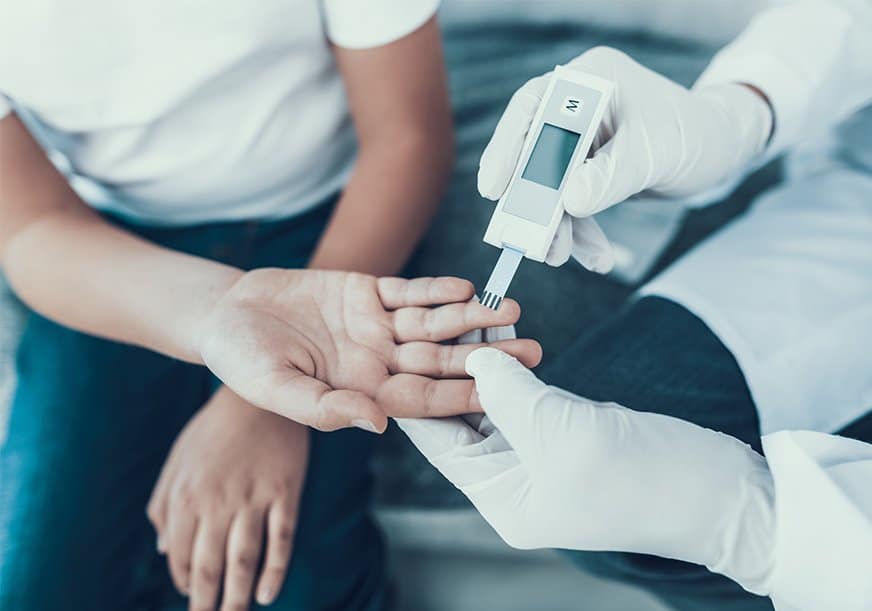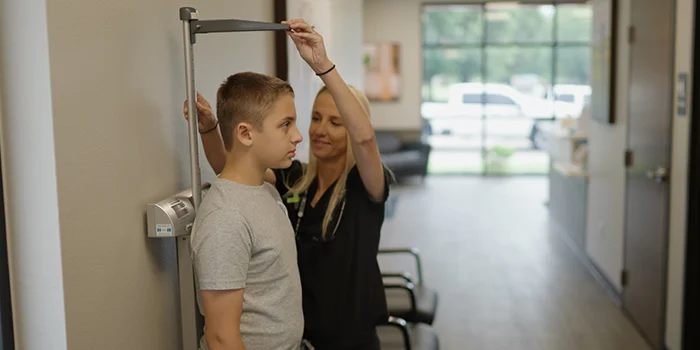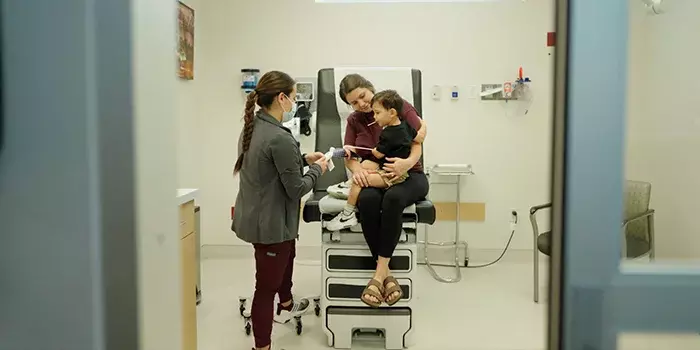Diabetes feels like a fairly common condition in our population, due to a number of factors. Diabetes in children however, seems less discussed and less understood. While less than 1% of the population in the United States has diabetes, the number of youths with this condition is growing at a drastic rate, making it something that needs to be part of the conversation in families, medical offices, and educational settings.
Types of Diabetes
There are two types of diabetes in children, type 1 and type 2. Type 1 diabetes occurs when the body fails to produce insulin, a hormone made in the pancreas. This failure causes the body to overload with sugars which take water out when passing through the body. Type 2 diabetes is becoming a larger issue with children, previously limited to the adult population because of the association with excess weight gain. There are a number of hereditary factors that increase a child’s chances of developing type 2 diabetes.
How to Recognize It
One of the largest signs, especially with type 1 diabetes, is an increase in urination. Other symptoms are excess thirst, increased tiredness, losing weight, and having an increased appetite. For type 2 diabetes the symptoms are similar, with the addition of darkening skin around the neck and armpits. Looking for these symptoms and speaking to your medical care team about these is important. According to healthychildren.org “high blood sugar levels and dehydration caused by uncontrollable diabetes is dangerous and can cause children to need intravenous insulin and fluids.”
How to Manage It
At this time there is no cure for diabetes, but it can be managed successfully over time. Regular monitoring through routine blood sugar checks, insulin therapy, and maintaining a healthy diet are crucial to staying in control. Some families opt for an insulin pump to help in monitoring and giving insulin. As children grow older, they can become more involved in planning their meals, counting sugars, and adjusting as needed. Exercise is important to any child’s wellbeing, but some children with diabetes will need to be watched that their sugars don’t drop too low during these times.
Partnering with Others
It can be difficult to start the conversation with school staff and administration, youth leaders in various settings, or even with friends who may take a hand in caring for your child, but it is important they understand a number of factors related to caring for your child with diabetes. At school, plan to have a meeting with the school nurse, administrators, and the teachers who will have the most contact with your student. You can request a plan, called a 504, is put into place that will make sure everyone is aware of your child’s medical needs and what modifications (like eating in class) they may have to keep them healthy.
While an extracurricular program outside of school may have never been aware of issues surrounding diabetes before, advocate for your child ahead of time. Explain their condition and what is needed in the event of an emergency. Make sure you always send your child with extra supplies as needed and a concise list of what they need from any given situation. If your child needs testing frequently through a certain time period, you may have to teach someone or be on hand to do testing yourself. If a family friend or caretaker wants to help and isn’t afraid to learn more about your child’s condition, take the opportunity to educate them, but trust your instincts on when to allow others to be the primary caretaker of the medical side of your child.
While receiving news about diabetes in your child, or for another family member, can be difficult, the condition is one you can help manage and teach others about. If you have medical concerns, diabetes or not, come visit us at one of our several locations. Our medical staff is available from 8am to 8pm every day of the week.






